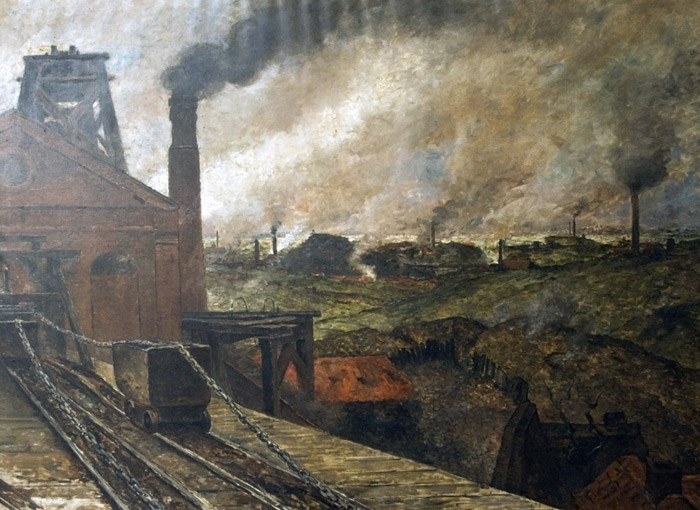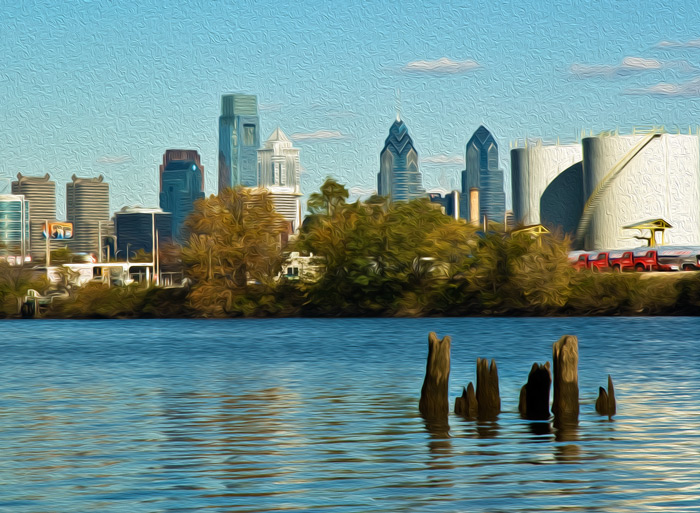Hole in the Clouds
Jun 26, 2010

We have all seen pictures of the oil gusher in the Gulf of Mexico; this is the one that put a catch in my breath today.
Nicole Kesterson of Gulf Shores, Alabama, is snapping a picture at the public beach near Gulf Shores State Park, while blackened surf splashes down onto the sand. Used to be, Gulf Shores and nearby beaches were characterized by what people called "sugar sand"--fine, white, perfect, clean quartz crystalline sand. I've seen tarballs there before--Gulf oil platforms are visible from many parts of the beach--but black waves of crude are something else again.
Picture these gentle little waves roughed up and built into mountains by a hurricane--Atlantic and Gulf waters are warmer this summer than ever before in human history, and hurricanes are the earth's major mechanism for dealing with hot spots of subtropical water. The oil will come crashing inland, obviously, surging for miles to flood uncleanable marshes and swamps. And evidence is accumulating that thanks to BP's massive use of dispersants, oil will also likely be sucked up into the sky; oil vapor will gather in the clouds along with water vapor to rain poison down on us all.
For what it's worth, the good news is that mosquitoes don't do well in oily environments.
I have spent enough time among geologists to accept that all substantial reservoirs of oil on the planet will eventually be tapped for human use. But what I hear about energy policy in America these days seems completely backwards to me: why aren't we letting the Saudis and the Russians let their wells run dry before we tap into our own precious reserves? Countries with no other source of income or with desperate economic problems have no choice but to sell off all their oil as quickly as possible. We're rich enough to wait for a while, and as the rest of the world's oil disappears, ours becomes more and more valuable. Perhaps eventually it will be worth so much that oil companies will be cautious not to risk spilling a drop.
Or whatever.
Alabama
beach
Nicole Kesterson
BP
oil
Gulf Shores
(Image credit: John David Mercer of the Mobile Press-Register)
Jul 8, 2014
 The Black Country of Belgium is the Borinage district of Wallonia province, where coal was mined to feed the furnaces of the Industrial Revolution from the 1820s until the 1960s.
The Black Country of Belgium is the Borinage district of Wallonia province, where coal was mined to feed the furnaces of the Industrial Revolution from the 1820s until the 1960s.
The countryside was devastated by slag heaps, ash ponds, and smokestacks, and life in and around the mines was brutal. For more than a century, the miners of Borinage organized labor actions that were violently suppressed; in the 1930s, the mine owners evicted strikers from their homes, and families spent the winter sleeping in the streets while soldiers guarded the empty houses.
Since the last of the mines closed in the 1960s, Borinage has been characterized by Belgium's highest unemployment rates.
Constantin Meunier was a Belgian painter and sculptor of the late nineteenth century whose work often focused on the social impact of industrialization. This painting is believed to date to about 1893.
Belgium
oil
ruins
industry
coal mining
1893
Wallonia
smokestack
Borinage
(Painting by Constantin Meunier)
Feb 25, 2016
 In the mid-eighteenth century, Ben Franklin's good friend John Bartram was a nurseryman, with a plant and seed business on a few acres across the Schuylkill River from Phladelphia. This is the view today from Bartram's estate, which is now owned by the city.
In the mid-eighteenth century, Ben Franklin's good friend John Bartram was a nurseryman, with a plant and seed business on a few acres across the Schuylkill River from Phladelphia. This is the view today from Bartram's estate, which is now owned by the city.
The oil tanks are part of the largest refinery complex in the northeast, recently acquired from Sunoco by an investment fund that operates it as Philadelphia Energy Solutions. This year's low oil prices don't seem to hurt the storage-and-refinery end of the oil business; PES says it has expanded its operation locally to employ more than 1,000 people and is trying to acquire a storage facility in North Dakota.
Bartram had an international reputation as a botanist, collecting seeds and plant specimens from all over the thirteen colonies and beyond, from Florida to Lake Ontario. Much of his traveling was by foot. He sent unique New World plants to London for the king's botanists there; they in turn sent him English plants that might or might not be suitable for American climes, including some trees and shrubs that survive today in Bartram's garden.
His son Bill continued the nursery business and also wrote a best-selling travelogue about plant-collecting adventures. Bill's niece Ann then took over the place and expanded it to include ten greenhouses and many acres of nursery gardens; in 1850, however, Ann and her husband Bob Carr ran out of money and had to sell the place.
landscape
oil
Schuylkill River
skyline
industry
Sunoco
Philadelphia Energy Solutions
John Bartram


